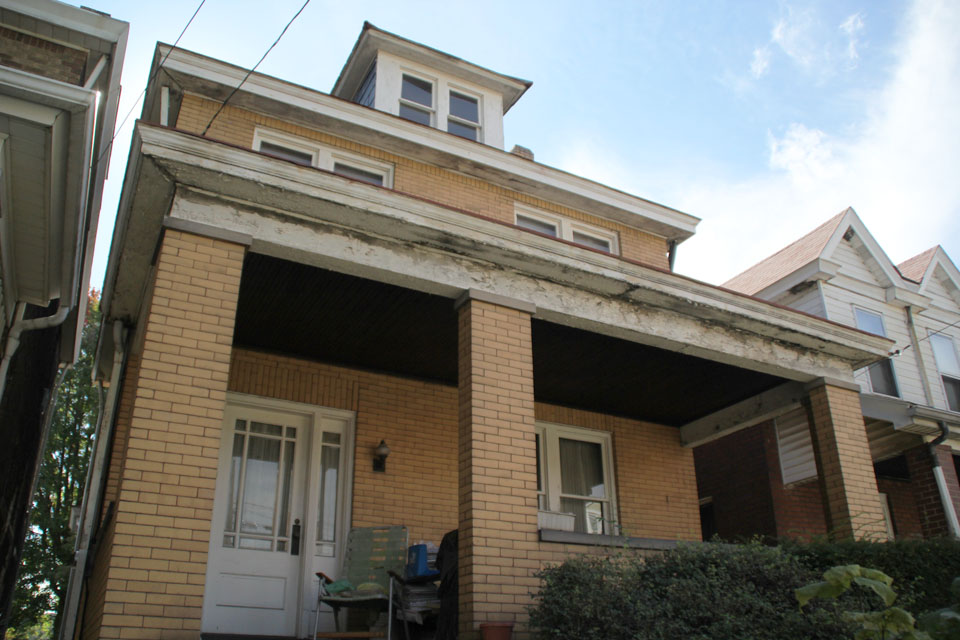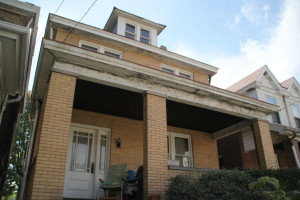

By Julian Routh | News Editor
The late adjunct whose death prompted outrage was in the early stages of filing a discrimination lawsuit against Duquesne, her attorney said.
Documents given to The Duke this week detail the events leading up to Margaret Mary Vojtko’s death on Sept. 1.
On July 18, Vojtko, with help from United Steelworkers attorney Daniel Kovalik, filed a claim of discrimination with the U.S. Equal Employment Opportunity Commission. In the document, Vojtko said she was fired “without cause and clearly because of my age and disability.”
Vojtko wrote in the document that the school told her she was no longer effective, “though I continued to get positive reviews from my students.”
Duquesne declined to release Vojtko’s student evaluation surveys.
Vojtko, who was 83 and lived in Homestead, also claimed in the report that Department of Modern Languages and Literatures chair Edith Krause and McAnulty College and Graduate School of Liberal Arts Dean James Swindal were responsible for employment discrimination violations. Krause and Swindal declined to comment.
In the months before the EEOC complaint, Kovalik sent two letters to University officials fighting for Vojtko’s job. The first letter, sent to Swindal on April 8, warned the University of an impending discrimination lawsuit if they went along with Vojtko’s firing.
The second letter was sent to University attorney Linda Drago on June 28, after Kovalik received word of Vojtko’s termination, notifying her that he and Vojtko would be bringing the discrimination claims to court.
Both letters spoke of Vojtko’s dire economic situation.
Vojtko received a letter from Eastern Area Adult Services on Aug. 14, two days before she suffered a heart attack, informing her that someone had reported her for needing assistance. An investigator was scheduled to visit her at her home on the morning of Aug. 19.
According to Kovalik, the case worker who sent the letter told him Adult Services was notified that Vojtko’s house was in “grave disrepair.”
Family and friends said Vojtko could not afford to fix a broken furnace in her home and frequently spent nights doing research at an Eat n’ Park. On one occasion, she was escorted off campus after officials found her sleeping in the adjunct office in Fisher Hall, according to friend and union organizer Joshua Zelesnick.
Public safety director Tom Hart said there are no records of Vojtko being escorted out of Fisher Hall by campus police. However, he said he remembers “numerous times that [Vojtko] was given a ride home by officers [to Homestead].”
There are four public safety records that document officers escorting Vojtko from Fisher Hall to Towers Living Learning Center earlier this year, “where arrangements were made for her to stay for a short period of time before she moved to Laval House,” Hart said.
Vojtko was permitted to stay in the Laval House, the campus ministry’s formation house, from February to March, Chaplain and Director of Campus Ministry Rev. Daniel Walsh said.
Vojtko stayed on the second floor, Walsh said, and was provided with daily meals.
“We welcomed her,” Walsh said. “And not just as a visitor, but to come whenever she wanted to our meals. We would prepare meals for her. She could be a member of the community and not a guest.”
A new priest’s arrival to the Laval House in March prompted Walsh to “address the cause of why [Vojtko] was here.” Walsh, along with other Spiritans, offered to repair or replace Vojtko’s furnace. University funds were also available to assist.
“We [said we] would quietly take care of the repair or the replacement if it was needed,” Walsh said. “[Vojtko] didn’t have the resources, and we were very willing to help.”
Vojtko refused the help because she was “a very private person,” according to Walsh.
Vojtko lived in the same home her entire life. Her house, on Sylvan Avenue in Homestead, was built in 1929, according to an Allegheny County property records. Nephew John Vojtko said Margaret Mary’s father built the house before she was born in 1930.
The property value of the three-story yellow brick house, which is currently vacant with stacks of items on the front porch, rose from $20,000 to $42,100 in 2013, which also increased her property taxes.
Vojtko’s mother died in 1937 when Vojtko was only 7-years-old, which prompted her sister Anne to raise her. The two lived together until Anne died in 1981. Her brother, Edward, died in 1993.
According to John Vojtko, Margaret Mary attended grade school at St. Michael’s in Homestead and high school at Vincentian Academy in North Hills. After studying at the University of Pittsburgh and the Catholic University of America in Washington, D.C, she worked at Pitt and Indiana University.
Vojtko was also employed as a nurse at St. Francis Hospital in Lawrenceville, which closed its doors in 2002. John Vojtko said his aunt studied nursing during her time at Catholic University.
Upon her hiring at Duquesne in 1988, Vojtko was paid $1,200 per course, according to the EEOC document. When she was dismissed in June 2013, she was being compensated $3,050 per course.
A pay floor went into effect for the fall 2013 semester requiring part-time adjunct professors to be paid a minimum of $3,500, provost and vice president for academic affairs Timothy Austin said.
The University has taken steps to replace part-time adjunct faculty with full-time positions, Austin said. He also said full-time positions are handed out on a “fair level playing field,” and both inside and outside candidates are encouraged to apply.
Kovalik, senior associate general counsel for the United Steelworkers union, wrote an op-ed piece in the Pittsburgh Post-Gazette on Sept. 18, days after The Duke reported her death, criticizing the way Duquesne treated Vojtko. The story sparked an internet debate over the treatment of adjunct professors.
Vojtko died from complications of a heart attack she had on Aug. 16. She suffered from ovarian cancer and had just completed her first week of treatment on the day she went into cardiac arrest. She spent 12 days at UPMC Mercy before she was transferred to hospice care at West Penn Hospital in Bloomfield.




pThank you for filling more gaps. However, some details raise more questions than they answer.
Here’s the simple, basic issue in any workplace that this terrible story highlights: IS IT FAIR, CIVIL, AND ETHICAL TO PAY ANYONE LESS THAN A LIVING WAGE, GIVE LITTLE OR NO BENEFITS, AND PROVIDE A RELATIVELY HOSTILE WORK ENVIRONMENT—BECAUSE YOU CAN? IS IT EVEN LOGICAL AND “GOOD BUSINESS” TO TREAT ANY EMPLOYEE THIS WAY? PROFESSOR VOJTKO WAS A HUMAN BEING WHO DIED ALONE AND IN POVERTY—IN AMERICA!